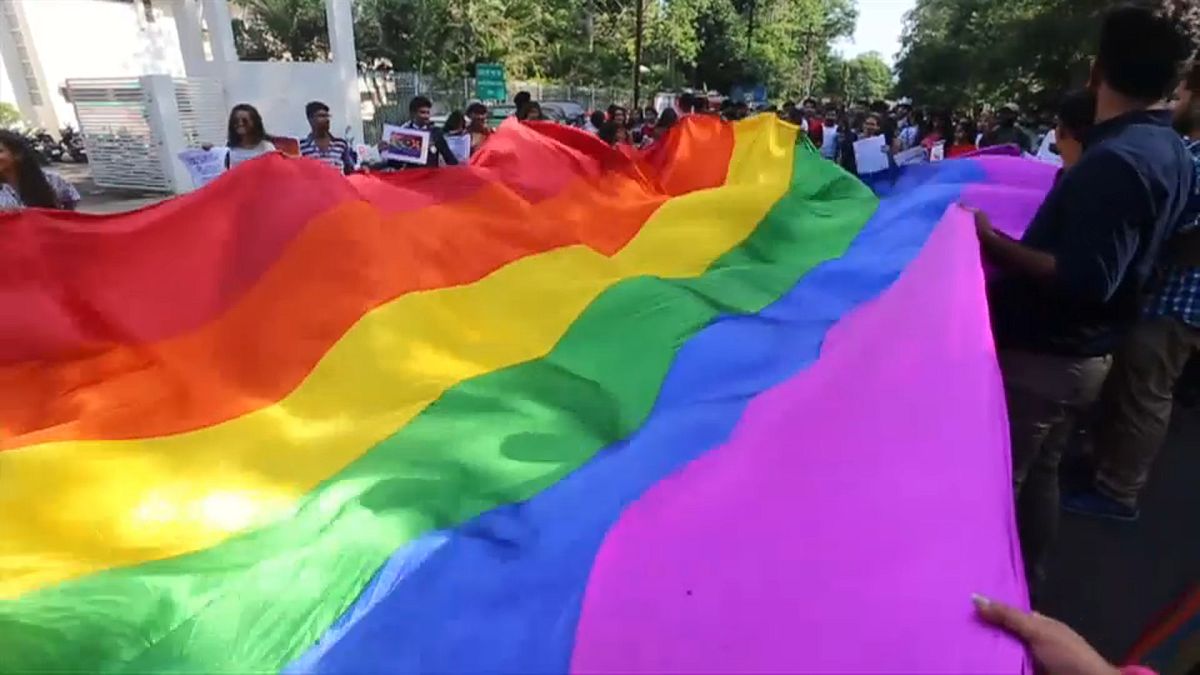India's top court has struck down a colonial-era law that makes homosexual acts punishable by up to 10 years in prison.
India's top court scrapped a colonial-era ban on gay sex on Thursday, in a landmark judgement that sparked celebrations across India and elsewhere in South Asia, where activists hope to push for similar reform.
Gay sex is considered taboo by many in socially conservative India, as well as in neighbouring Bangladesh, Sri Lanka and Pakistan. It was reinstated as a criminal offence in India in 2013, punishable up to 10 years in prison, after four years of decriminalisation.
A five-judge bench in India's Supreme Court was unanimous in overturning the ban. But the ruling could face a legal challenge from groups that say gay sex erodes traditional values.
"Any consensual sexual relationship between two consenting adults - homosexuals, heterosexuals or lesbians - cannot be said to be unconstitutional," said the Chief Justice of India, Dipak Misra, as he read out the judgement.
Supporters of the campaign to scrap the ban milled around the court before the verdict and cheered the decision, hugging one another and waving rainbow flags.
Some were overcome with emotion, while others waved banners with slogans such as "Gay and Proud" and "I am who I am". A few distributed sweets in celebration.
"I'm so excited, I have no words," said Debottam Saha, one of the petitioners in the case.
Activists hope the scrapping of the ban will uphold the right to equality but many acknowledged that discrimination would persist.
"We are no longer criminals, (but) it will take time to change things on the ground - 20 to 30 years, maybe," said Saha.
Balachandran Ramiah, a second petitioner, also said there was "a long road ahead when it comes to changing societal mindsets", and stressed the importance of employers endingdiscrimination in workplaces.
"A number of companies up until now were unable to put these down on paper," he said, referring to steps to end discrimination.
The law against gay sex, known as "Section 377", was introduced during British rule of South Asia more than a century-and-a-half ago.
The law banned "carnal intercourse against the order of nature with any man, woman or animal" - which was widely interpreted to refer to homosexual sex.
The battle to repeal Section 377 began in 2001, when a group called the Naz Foundation challenged it in court. That eventually led to its repeal in 2009.
It was reinstated in 2013 after a legal challenge from an astrologer, Suresh Kumar Kaushal, who told Reuters on Thursday the latest verdict would erode traditional society.
